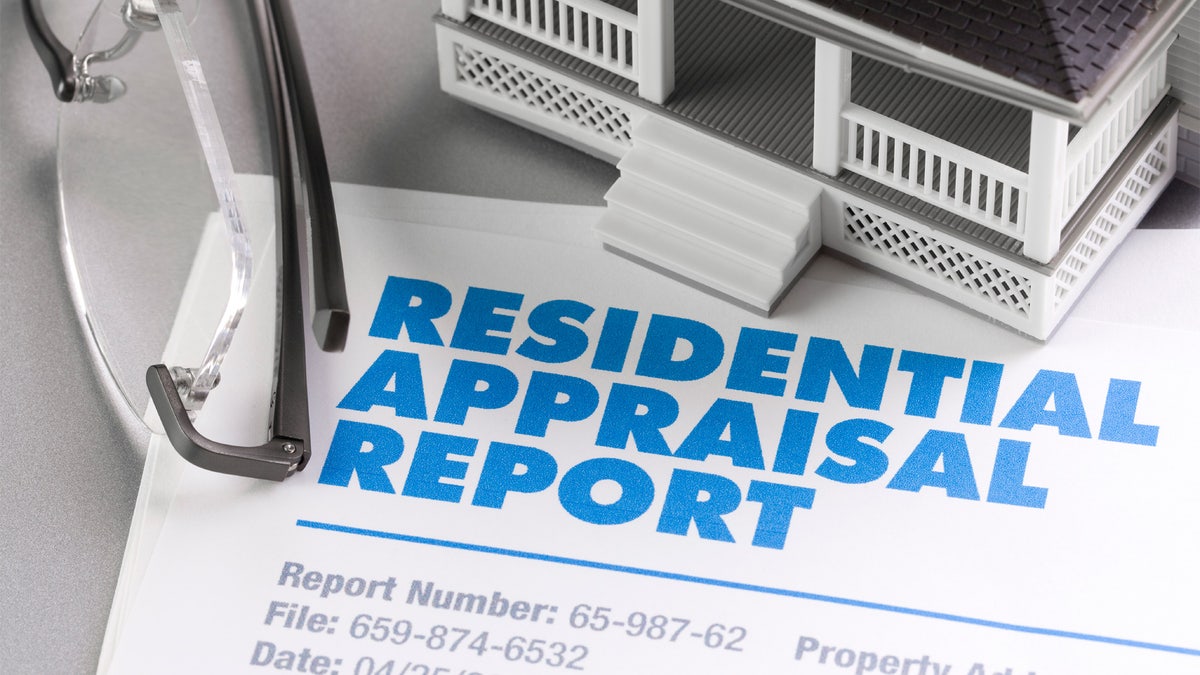
home-appraisal-report (Copyright: Bill Oxford)
Unfortunately, it happens: A low appraisal can n already bumpy home-buying process. Suddenly, you find yourself in a conundrum: Your bank will fund a loan only up to the appraised value. So do you walk away from the sale? Do you fork over more money to cover the difference? Do you crawl into the corner of the apartment you fear you'll rent forever and cry your little eyes out?
We know you have home-buying agita -- and we're here to help. There are ways to deal with a low appraisal -- but only if you know why it happened.
Behold the 10 most common reasons for a low appraisal, according to our expert sources.
1. The appraiser doesn't do a neighborhood deep-dive
To appraise the value of a property, appraisers rely heavily on comps, which are prices paid for similar homes sold recently. But the appraiser could select comps of homes that sold for mysteriously low prices.
Appraisers don't normally officially inspect the comps, says Peter Grabel, managing director of Luxury Mortgage in Stamford, CT. They wouldn't know if there was a mold issue, asbestos, or a nasty divorce that led to a quick below-market sale of a comparable home, skewing the analysis.
2. The appraiser has to go outside the hood
Sometimes there isn't enough data on sales of similar homes in the area, forcing the appraiser to use comps from a nearby -- and possibly less desirable -- community, Grabel says. Ideal comps should be similar in style, size, location, and view.
3. The importance of the view
Does your home have a knockout view -- or, at least, one that's better than the comp down the street that overlooks unsightly power lines? If so, make sure your appraiser knows it, too. If the difference in view is not obvious, your home could appraise for lower than expected.
4. A gorgeous basement
The house has a large, beautiful finished basement with a bedroom and a bathroom. You've doubled your square footage. Score! Unfortunately, appraisers are required to use much lower value per square foot for space below ground.
5. The extras that totally sold you aren't selling the appraiser
Surprisingly, a pool, tennis court, and high-end landscaping are attractive features, but they frequently don't lead to significantly higher valuation on appraisals. Here's why: When an appraiser compares two otherwise identical homes, one with the amenities and one without, the difference in their selling price is typically not nearly as much as the cost of adding these features -- especially when the amenities are of better quality than is standard for the area.
For example, if you spend $200,000 to install a pool, but other homes in neighborhood have $50,000 pools, the difference in quality is not likely to appraise well. So be prepared for a lower value than expected if the property has one or more of these types of features.
6. The condo is the best in the building
Upgrades and finishes might not always boost the value of your home. This is particularly true of co-ops and condos, where the square footage plays a major role in value.
"Let's say you are buying Unit 15A, which has a brand-new, top-of-the-line kitchen, much nicer than is customary in this type of building," Grabel explains. "Units 15B and 15C recently sold for less. They are exactly the same size and have new kitchens but were not done to the same quality. An appraiser can make adjustments, but it will be a challenge for your unit to get the valuation that you might think it is worth."
7. The market is too hot to keep up with
Home prices in the area might be increasing so quickly that the comps that sold six months ago don't yet reflect this improvement.
"In Brooklyn and in Harlem, for example, prices are soaring, properties are selling for a record price per foot," Grabel says.
"If six months ago the top price was $1,000 per foot but you are paying $1,100 per foot, there are no recorded comps at that price for an appraiser to use."
Appraisals, by their nature, are backward-looking. You can ask the appraiser to make a "market adjustment," but they don't have to do it.
8. You intentionally overpaid
There are many reasons you might overpay for a home: You might just fall in love with the place and want to make sure you get it -- at any cost.
"During prime selling season, bidding wars erupt left and right," Grabel says. "And the downside to winning one is the reality of getting financed on that final price."
Remember, the bank is going to lend only the appraised fair market value, and not the higher price you might think it's worth. So you'll be left paying the difference yourself.
It's an emotional choice, and we're not here to judge. But your appraiser will, and just beware: What the appraiser says (usually) goes.
9. The appraiser is inexperienced -- or just bad
Sometimes, it really does come down to a job not well done. The appraiser could be unfamiliar with the nuances of the local market or might simply rush through the job. Unfortunately, a home buyer obtaining a mortgage has no control over the appraisal selection process -- your lender is the one who orders the appraisal, either directly from an appraiser or through an appraisal management company.
"We actually choose to pay for appraisals so that we can limit our pool to only the top appraisers," Grabel says. "This is not a guarantee that the value will come in where we need it to, but it typically ensures a good quality report from an experienced appraiser."
Worried about getting a dud? You can ask your lender how it selects appraisers or if there's a particular company it uses -- then do your homework.